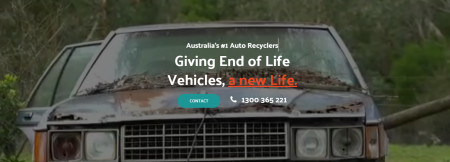Australia Needs a Recycling Solution for Used Electric Car Batteries, Say Auto Recycling Experts

MELBOURNE, Australia, November 3, 2022 (Newswire.com) - The global climate crisis is growing, along with the demand for electric cars — now, It Matters To You, experts in the automotive recycling industry offering cash for cars Melbourne-wide, is calling for a more efficient recycling method for lithium-ion batteries, the batteries that power electric vehicles. Although these batteries are recyclable, research shows that the recycling rate of these batteries is worryingly low, with most spent Li-ion batteries ending up in landfill.
A report by the International Energy Agency found that by the year 2030, there will be a predicted 140 million electric vehicles on the roads globally. If countries fail to take the correct measures to recycle Li-ion batteries, landfills will continue to grow, posing an increased threat to the environment.
Many of the metals in Li-ion batteries are able to be recovered and used again to make new batteries or other materials. Despite this, approximately only 3% of spent Li-ion batteries are recycled in Australia — in the United States and the European Union, the figure totals less than 5%.
It Matters To You, specialists in car removal Melbourne-wide, explains that there are a number of reasons why Australia is not taking advantage of the recyclability of Li-ion batteries. Currently, lithium-ion batteries in Australia need to be shipped offshore in order to be melted down and recycled. There are logistical constraints with this process along with financial and economic concerns to consider, as well as regulatory barriers between nations.
Researchers have focused more closely on lowering the cost of Li-ion batteries and increasing their longevity than they have on making the recycling process easier and more efficient. In the past, there have not been enough researchers nor funds allocated to studying lithium-ion batteries, so efforts have had to be concentrated in areas that have simpler solutions.
It Matters To You asserts that the beginning of the solution lies at the beginning of the problem: the storage and transportation of spent Li-ion batteries. In order to begin solving this issue, researchers need to find ways to safely collect and store used Li-ion batteries before transporting them to offshore recycling plants.
As researchers get closer to a solution, It Matters To You suggests the next step will be reducing the environmental impact of the production of lithium-ion batteries.
Source: It Matters To You
